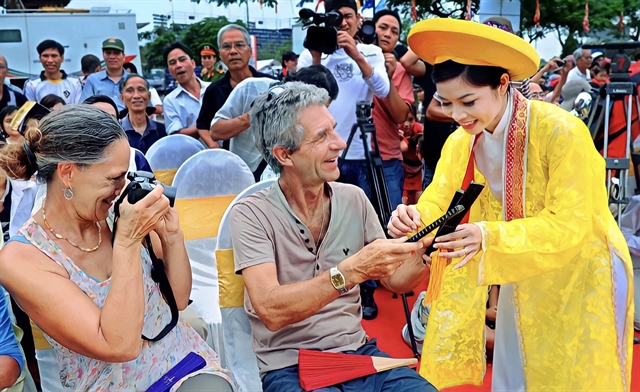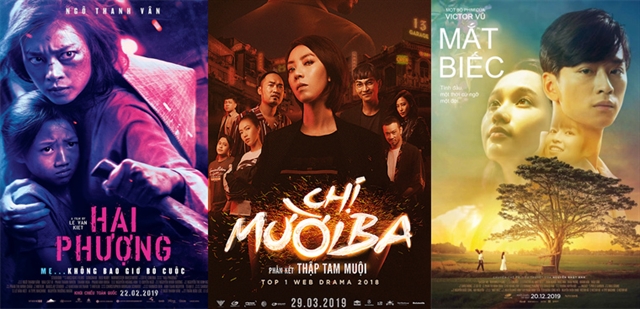 Life & Style
Life & Style

Experts have shared advice and experience to help Việt Nam better develop and protect its cultural products.k
HÀ NỘI — Experts have shared advice and experience to help Việt Nam better develop and protect its cultural products.
The Copyright Office of Việt Nam in collaboration with the British Embassy and Rouse Law Company Limited organised a seminar on the Strategy for the Development of Cultural Industries in Việt Nam late last week.
The seminar was held online with the goal of finding out the development direction for the cultural industry in Việt Nam, within the framework of the Financial Sector and Intellectual Property Programme (FSIP), which is part of the UK-funded ASEAN Economic Reform Programme to help the Government of Việt Nam develop an intellectual property system.
The creative sector, such as music, film, media and digital art, usually includes creative services with intellectual property at its core. FSIP is conducted to assist relevant state management agencies such as the Copyright Office of Việt Nam, the National Office of Intellectual Property of Việt Nam and other agencies under the Ministry of Culture, Sports and Tourism in developing models to promote and support ownership for businesses operating in the creative industries, by absorbing and learning from the experience of other countries.
At the seminar, experts from the British Embassy and Rouse Group spoke about the development of cultural industries in the UK, the experiences of other countries and lessons learned on state management for the development of five cultural industries: cultural tourism, film, fine arts, photography and exhibitions, performing arts, and advertisement.
Speaking at the seminar, Deputy Director of the Copyright Office of Việt Nam Trịnh Tuấn Thành said: “The cultural industry is a new field in Việt Nam. Therefore, we have been facing a number of difficulties and challenges. The sharing of UK experts will be a premise for the Ministry of Culture, Sports and Tourism to accumulate experience and promote the development of the cultural industry.”
Cultural industries are those that produce tangible and intangible products of art and creativity that have the potential to promote wealth and income generation through the exploitation of cultural values and produce knowledge-based products and services.

|
| Introducing Vietnamese culture to international visitors at Huế Royal Palace. — Photo courtesy of tapchicongsan.org.vn |
In 2016, the then Prime Minister approved the strategy to develop Việt Nam's cultural industries to 2020, with a vision to 2030, with specific goals in 12 areas: advertising; architecture; software and entertainment; crafts; design; film; publishing; fashion; performing arts; fine arts, photography and exhibitions; television and radio; and cultural tourism.
The Ministry of Culture, Sports and Tourism is assigned to directly manage five branches of cinema; performing arts; fine arts, photography and exhibitions; advertisement; and cultural tourism.
In 2020, following the direction of the then Prime Minister, the Ministry of Culture, Sports and Tourism coordinated with other ministries, branches and localities to implement the strategy for developing the cultural industry and achieved great results, such as promulgating policies, plans and cultural diplomacy activities to promote cultural industries at home and abroad, implementing communication activities to raise public awareness about the role, position and importance of cultural industries for socio-economic development in the new period.

|
| Việt Nam's film industry achieved huge revenue in 2019. — Photo courtesy of dienmayxanh.com |
Some sectors have generated significant revenue, such as fashion, cinema, cultural tourism, performing arts. In particular, the film industry's revenue in 2019 was more than VNĐ4 trillion. — VNS




